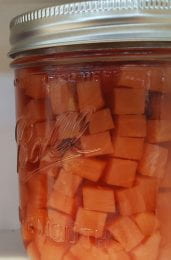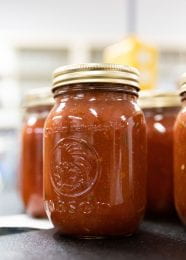
Photo: K-State College of Agriculture
Small food processors add value and support for local communities. This includes farmers market vendors. For some food products, such as acidified foods, it is required the food processor be trained to process these foods safely. Acidified foods or formulated acid foods examples are pickles, salsa, BBQ sauce, and others.
The Better Process Control School for Acidified Foods is an FDA-recognized course for operators or manufacturers who produce thermally processed acidified foods. The course is being offered by Kansas State University and University of Missouri.
Those passing two exams with a grade of 70% or higher will receive a Certificate of Course Completion to fulfill the training requirements of the FDA Acidified Food regulations. Exams will be open book, multiple choice and will be online. Exams generally require no more than one hour to complete. Homework is required.
Topics covered include microbiology of food preservation, formulating acid/acidified food products, containers and closures, record keeping, and FDA process of filing.
Information and Registration at:
https://foodsci.k-state.edu/extension/extension-events.html
Cost: $400
Registration deadline:
October 20, 2023
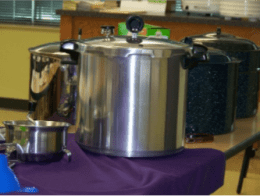
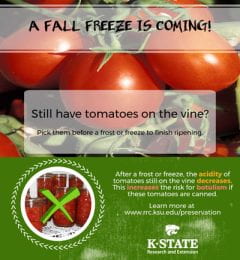 When preserving any food, use the best food possible for the safest results. This includes tomatoes. During the fall, many gardeners still have tomatoes on the vines. But once a frost or freeze happens, these tomatoes are not safe to preserve by canning.
When preserving any food, use the best food possible for the safest results. This includes tomatoes. During the fall, many gardeners still have tomatoes on the vines. But once a frost or freeze happens, these tomatoes are not safe to preserve by canning.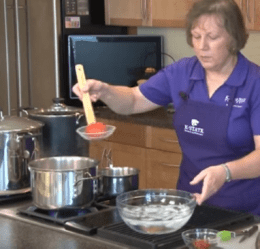
 Sugar or pie pumpkins are best for cooking and baking a tasty pie or bread. They are smaller than pumpkins used for carving festive jack-o-lanterns. They have dense flesh and high sugar content. The flesh is less stringy and the color is usually darker. If using fresh pie pumpkins in place of a 15-ounce can of pumpkin, use 1 3/4 cups of mashed fresh pumpkin.
Sugar or pie pumpkins are best for cooking and baking a tasty pie or bread. They are smaller than pumpkins used for carving festive jack-o-lanterns. They have dense flesh and high sugar content. The flesh is less stringy and the color is usually darker. If using fresh pie pumpkins in place of a 15-ounce can of pumpkin, use 1 3/4 cups of mashed fresh pumpkin.